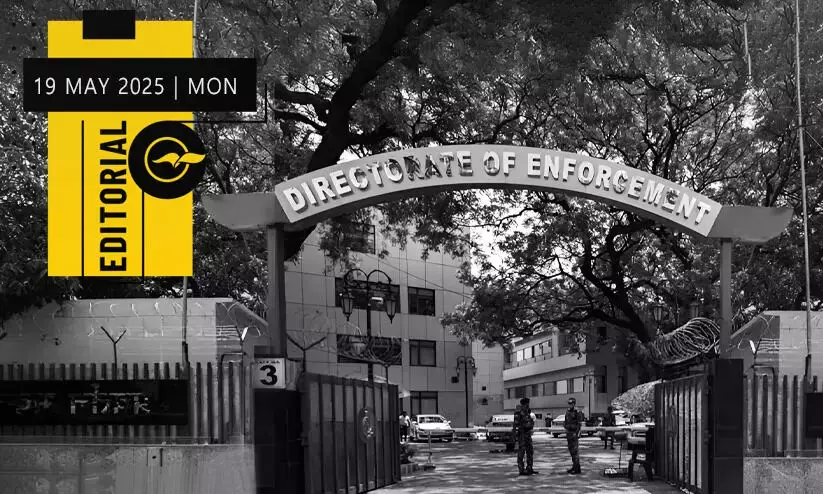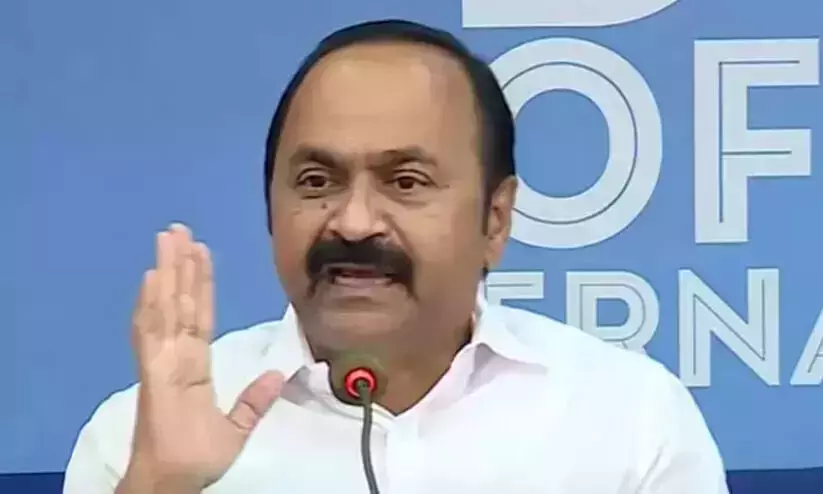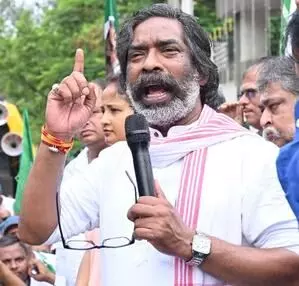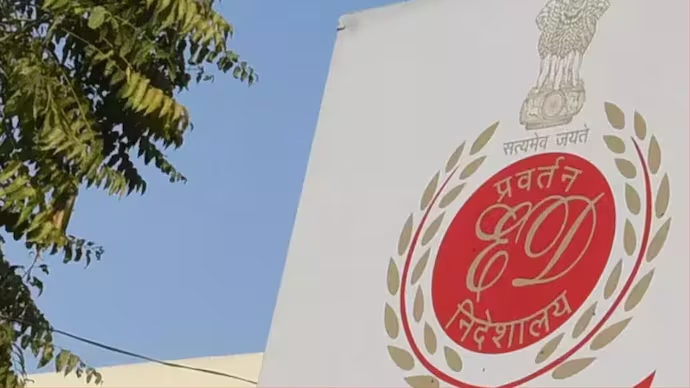
The shame brought on itself by ED
text_fieldsIn India, which ranks 96th on the global corruption index and where sacks of currency notes were found in the home of a High Court Judge, it is not surprising when allegations of corruption arise in any sector. Enforcement Directorate (ED)—an agency considered the most powerful investigative body in the country in recent years--known for its power to arrest even chief ministers, seize assets, and investigate top-level individuals including media personnel, is now facing serious accusations, and that is truly shocking. It is the alleged corruption by top officials of the ED, the very agency responsible for investigating money laundering cases, that has become the most recent topic of discussion in Kerala. The Vigilance Department has now registered a case naming the Assistant Director of ED’s Kochi unit as the first accused, based on a complaint that he demanded Rs 2 crore from a cashew industry businessman to settle a case. Adding to the controversy, a religious leader has also come forward with a serious allegation that ED officials framed a case accusing him of accumulating disproportionate assets by misrepresenting a Rs 2.5 crore bank loan as investment income—and then demanded Rs 2 crore in bribe to drop the charges.
Some of the shocking revelations made by victims are: leaking raid information to the media to create a public image of guilt, interrogating family members—including women—by forcing them to undress, issuing threats of imprisonment and complete isolation, and sending middlemen to offer advice on how to escape the case by bribing officials. Their statements suggest that the very agency tasked with protecting the nation from financial crimes is operating at a level comparable to underworld gangs engaged in blackmail and intimidation. Although revelations about the murky dealings of the ED in Kerala are emerging only now, similar allegations against officials of this investigative agency have surfaced in various parts of the country in the past as well. Earlier this year, a notorious incident occurred in Shimla where an ED Assistant Director was arrested by the CBI for allegedly involving the infamous criminal gang of Lawrence Bishnoi to extort money in exchange for not arresting someone in a corruption case. In another case from Mumbai, an ED Assistant Director was arrested for threatening a jewellery shop owner that his son would be framed in a money laundering case unless a bribe was paid. Cases and sharp criticisms against ED and CBI officials have surfaced in various states, with even High Courts issuing stern remarks. The Supreme Court itself once remarked that even if a crime actually occurred, there could be a perception that the ED is not doing things fairly due to the way it investigates. Allegations like the ones now coming to light in Kerala have cast a shadow of doubt over every case the ED intervenes in. It is hard to deny that the central government bears responsibility for allowing independent investigative agencies like the ED and CBI to deteriorate to this extent. Far from being independent, the ED is now widely perceived to be functioning under the full control of the ruling party at the Centre. ED focuses on those whom the government does not like from political leaders including Chief ministers to charity organisations. Jharkhand CM Hemant Soren, former Delhi CM Arvind Kejriwal, former Deputy CM Manish Sisodia, and several leaders of the Aam Aadmi Party have faced arrests and investigations. Similarly, leaders from Bengal, Tamil Nadu, Maharashtra, and Kerala who are in opposition to the BJP have also been frequent targets. The ED has been showing extra zeal to implicate and arrest non-BJP party leaders.
There have been instances where individuals were forced during interrogation to name certain political leaders. In a bizarre turn of events, leaders who are at one point charge-sheeted in money laundering cases seem to receive a clean chit once they switch parties and align with the ruling government. At the same time, in cases like the Kodakara hawala money case, which involved individuals linked to the ruling party at the Centre, it was none else who caused them to vanish without a trace. In the last two Lok Sabha elections and several state assembly elections, the ED has operated as though it were the principal ally of the ruling coalition at the Centre, targeting opposition leaders and the businessmen who support them. What remains to be seen now is whether more Keralites who have fallen victim to the ED’s unjust actions will come forward with revelations in the coming days, or whether they will remain silent out of fear. As long as investigative agencies are not independent and honest, it becomes extremely difficult to protect a country from corruption and other irregularities. If these agencies themselves become part of extortion and blackmail rackets, corruption will just become institutionalized. The country's position in corruption indices will continue to fall in a shameful manner. Only a complete cleansing of the system can bring an end to this. But as long as these agencies remain under the control of the ruling party at the Centre, the possibility of such a transformation remains a distant dream.









